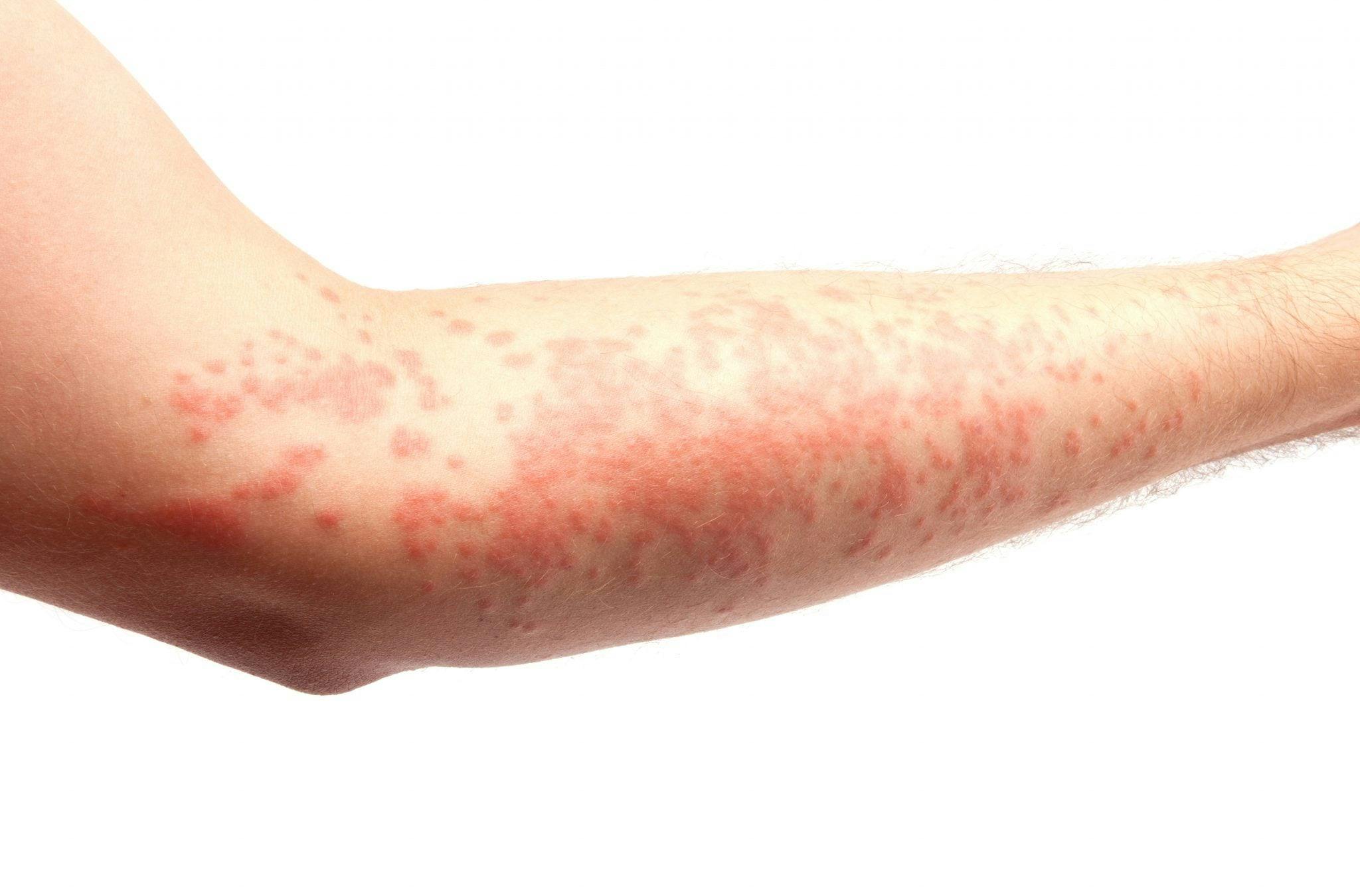Skin cells on the body naturally grow throughout life, and sometimes this process can speed up, causing cells to begin building up rapidly on the skin—a condition called psoriasis. It can lead to scales and red patches on the skin, which are often itchy and can be painful.
Psoriasis is a chronic disease that comes and goes in flare-ups. There is no cure, but there are treatments to manage symptoms. Here are the main types, symptoms, causes and treatment methods for psoriasis.
Types
There are seven types of psoriasis:
- 1. Plaque psoriasis: The most common form, plaque psoriasis leads to dry, raised red skin lesions covered in silvery scales. It can occur anywhere on the body, and can be painful or itchy.
- 2. Nail psoriasis: Can cause pitting, abnormal nail growth and discoloration. Nails may loosen and separate from the nail bed, or crumble in severe cases.
- 3. Guttate psoriasis: A type that mostly affects young adults and children, and is typically triggered by a bacterial infection. It includes small, water-drop-shaped scaling lesions on the trunk, arms, legs and scalp.
- 4. Inverse psoriasis: Mainly affecting the armpits, groin, under the breasts and near the genitals, inverse psoriasis causes smooth patches of red, inflamed skin that worsen with friction and sweating.
- 5. Pustular psoriasis: An uncommon form that can occur in widespread patches, and with pus-filled blisters.
- 6. Erythrodermic psoriasis: The least common type, but can cover the body with a red, peeling rash that can itch and burn intensely.
- 7. Psoriatic arthritis: This can cause the kind of swollen, painful joints that are common in arthritis cases. It’s typically not as severe as general arthritis, but in some cases, it can lead to permanent deformity.
Symptoms and Complications
Symptoms of various types of psoriasis can include any listed above, and any of the following:
- Red patches covered with thick, silvery scales
- Small scaling spots
- Dry, cracked skin that might bleed
- Itching, burning or soreness
- Thickened, pitted or ridged nails
- Swollen and stiff joints
Most psoriasis cases go through cycles where they’ll flare up for a few weeks or months and then subside. They may even go into complete remission for periods of time.
People with psoriasis are at a greater risk of developing certain other diseases:
- Psoriatic arthritis (discussed above)
- Eye conditions: Conjunctivitis, blepharitis and uveitis
- Obesity
- Type 2 diabetes
- High blood pressure
- Cardiovascular disease (risk is twice as high as for those without psoriasis)
- Metabolic syndrome
- Autoimmune diseases
- Parkinson’s disease
- Kidney disease
- Emotional problems (such as depression, low self-esteem and social withdrawal)
Causes, Triggers and Risk Factors
Exact causes of psoriasis are not known, but it’s thought to be related to an immune system issue with T cells and other white blood cells in the body. The T cells are meant to defend the body against foreign substances, but with psoriasis, they’ll instead attack healthy skin cells by mistake. This triggers more cell growth.
Psoriasis often starts or worsens based on a trigger, which you can potentially identify and avoid. Some triggers can include:
- Infections like strep throat or skin infections
- Skin injury such as cuts, scrapes, bug bites or severe sunburn
- Stress
- Smoking or heavy alcohol consumption
- Vitamin D deficiency
- Certain medications: Lithium, beta blockers, antimalarial drugs and iodides
Anyone can develop psoriasis, but factors that increase risk include:
- Family history
- Viral or bacterial infections: People with HIV are at higher risk, as are children and young adults with recurring infections
- Stress: Stress can impact the immune system
- Obesity: Lesions associated with all types of psoriasis often develop in creases or folds of skin
- Smoking: Smoking increases both risk and potential severity of psoriasis, and may play a role in initial development as well
Treatment
The goal of psoriasis treatment is to stop skin cells from growing so quickly, and to reduce inflammation and clear the skin. Treatments include:
- Topical treatments: Corticosteroids, vitamin D analogues, anthralin, topical retinoids, calcineurin inhibitors, salicylic acid, coal tar and various moisturizing creams can have success treating symptoms.
- • Light therapy: Using natural or artificial ultraviolet light, this is basic exposure to controlled amounts. It has various types and applications.
- Medications: If psoriasis is severe or resistant to other kinds of treatment, your doctor may prescribe oral or injected drugs, known as systemic treatment. These medications are only used for short periods of time due to potentially serious side effects, and they may be alternated with other forms of treatment. They include retinoids, methotrexate, cyclosporine, biologics (drugs that alter the immune system), and certain others.
The traditional approach is to start with the mildest treatments, and progress to stronger ones if necessary. Alternative medicines such as aloe vera, fish oil and Oregon grape have worked for some people, though none have been definitively proven effective.
If you’re dealing with psoriasis, your doctor will recommend a treatment approach for you and your specific case.
Revere Health Orem Family Medicine is devoted to comprehensive healthcare for patients of all ages. Our commitment is to provide thorough and timely health care for the entire family throughout all stages of life. We revere our patients’ health above all else and work together to help them live better.
Sources:
“Understanding Psoriasis — the Basics.” WebMD. http://www.webmd.com/skin-problems-and-treatments/psoriasis/understanding-psoriasis-basics#1
“Psoriasis.” The Mayo Clinic. http://www.mayoclinic.org/diseases-conditions/psoriasis/home/ovc-20317577






